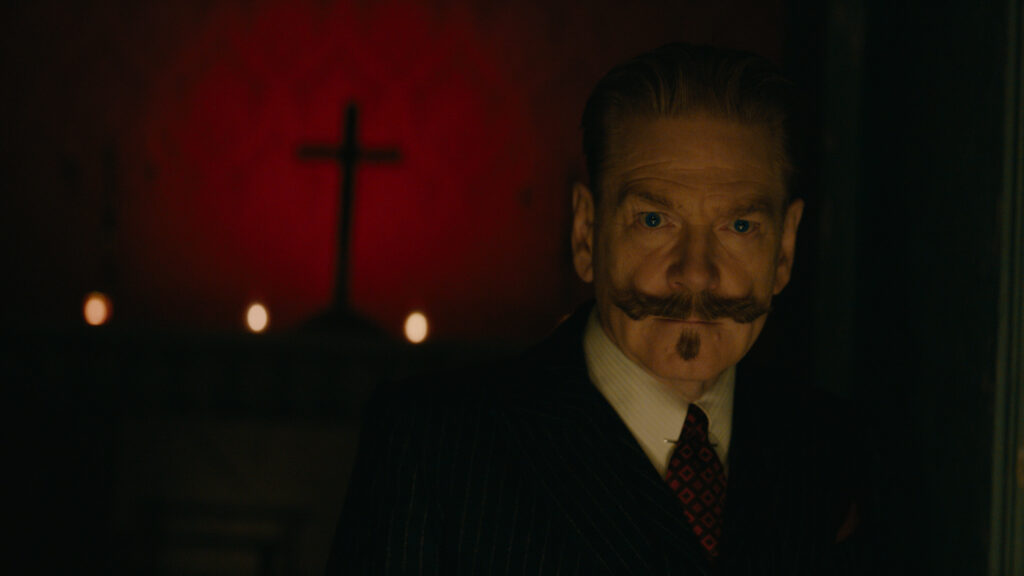
Kenneth Branagh’s latest opus, A Haunting In Venice (2023), is his third outing with Agatha Christie following Murder On The Orient Express (2017) and Death On The Nile (2022). Branagh’s sentimental sensibilities are inarguably better suited to the escapist fare of the whodunnit than the self-seriousness of the autobiographical Belfast (2021). Though it seems that the creative spark that once made Branagh the successor of Orson Welles as the cinema’s reigning Shakespearean adaptor has long since dissipated.
For first and foremost Branagh is an egotist. Many artists are although few broadcast the fact the way Branagh does in his films. A Haunting In Venice re-imagines Christie’s mystery as a portrait of Poirot rather than as a mystery. In Branagh’s hands Poirot is the subject of the film, not the mystery that he has been tasked to solve.
In a way this updates Christie’s work for the contemporary audience more likely to bond with a detective who exists as a fully realized and well rounded character than the unknowable “other” capable of inhuman intellectual feats like Sherlock Holmes who provided the mold for Christie’s Poirot character. Still, it seems suspect that Branagh put himself at the center of the film as director and star, serving the character Poirot at a cost to the development and realization of the characters around Poirot; the suspects.
And, as was the case with the last two Poirot films, the supporting cast is stacked with big name talent. Actors like Tina Fey, Michelle Yeoh, and Camille Cottin make A Haunting In Venice a “must see” blockbuster even if they are given relatively little to do. With each of Branagh’s Poirot films the cast shrinks and the focus zeroes in more closely on the Poirot character leaving actors like Yeoh and Cottin with nothing to do except to embrace their characters as archetypes born out of narrative necessity. The exception here is Tina Fey who, cast against type, manages to be a better Bouc than Bouc (Tom Bateman) ever was.
But aside from the superficial pleasures of glimpsing movie stars in beautiful outfits Branagh’s Poirot movies have little to offer. A Haunting In Venice proves that somehow Branagh has never seen Don’t Look Now (1973) and that space or location mean very little to him as a filmmaker beyond the physical boundaries that are set. Branagh is too theatrical in his thinking and too literal in his directing to make a good Poirot film.
